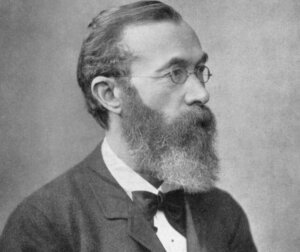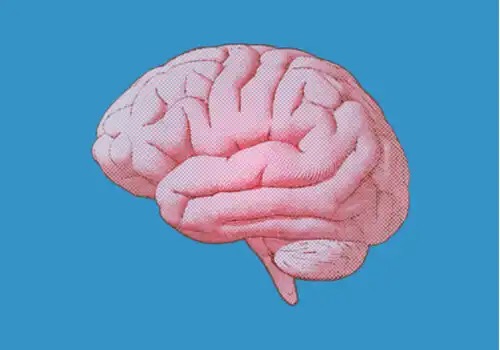Wilhelm Wundt, the First Psychologist?

Although he probably isn’t as well-known as other figures, Wilhelm Wundt is extremely significant regarding what we know about the mind. In fact, some consider him the father of scientific psychology. This is an honorary degree but one that most psychologists agree he deserves.
The origins of psychology are centuries old, which is where scientific psychology has its roots. However, it wasn’t until the mid-19th century that Wilhelm Wundt created the first experimental laboratory.
Today, psychology has its own academic path. Students can choose to pursue university degrees and master’s degrees in the subject. Furthermore, they can take advantage of non-regulated courses and training to complement their knowledge.
However, if we go back a couple of centuries, at that time, psychology wasn’t regulated. Therefore, anyone who wanted to study it had to train, to some extent, in other associated areas such as medicine or philosophy. Its origin of knowledge was situated in philosophical readings by figures such as Plato or Aristotle. Wilhelm Wundt made contributions to change this particular course.
Nowadays, we understand psychology as a part of life. It’s like it’s always been there. However, in 1832, when Wilhelm Wundt was born, there was no such perception. In addition, nobody could even imagine that the study of human behavior deserved to be a field of study in its own right.

The importance of Wilhelm Wundt in psychology today
Experts consider that psychology was born in 1879. This was the year Wundt opened the first-ever experimental psychology laboratory in the town of Leipzig. Up to that point, there had only been philosophers like Hume or Descartes. They worked from a philosophical standpoint.
However, Wundt put in place the foundations needed for the study of the brain and statistical matter. He made it easier to study human behavior. In fact, he designed and used the first measuring instruments for this purpose.
Wundt lived during a revolutionary period in the psychological field. Along with him, there were other important researchers. One of these was Francis Galton, who dedicated much of his time to studying memory. Then there was Gustav Fechner who measured sensations produced by stimuli of different intensities and types.
“Our mind is so fortunately equipped, that it brings us the most important bases for our thoughts without our having the least knowledge of this work of elaboration. Only the results of it become unconscious.”
-Wilhelm Wundt-
His laboratory
In the 1950s, Wundt chose to go one step further in the scientific study of the mind. He decided to combine the experimental method with the statistical. This was to generate replicable strategies in order to better understand how the brain works.
Wundt took a very important step when he abandoned his comfortable job teaching physiology at Heidelberg University, and went to Leipzig. Here, he started to introduce mental processes to the controlled environment of a laboratory. His idea was to produce oscillation frequency determinations in different variables and to analyze the effects of this change. He kept the parameters he wasn’t studying constant.

He used Fechner’s methodology to study perceptions and sensations. In fact, he exposed volunteers to different stimuli. Then, he analyzed the results in search of associations or differences. This way, he was able to obtain data that eliminated any external factors of noise, location, etc.
Nowadays, experts have discarded most of Wundt’s theories. However, there’s no doubt that he tried to find answers to many questions. The kind of questions that had always been there, yet that, due to lack of data, had only ever been speculated upon.
All cited sources were thoroughly reviewed by our team to ensure their quality, reliability, currency, and validity. The bibliography of this article was considered reliable and of academic or scientific accuracy.
- González Álvarez, Julio, (2014). El laboratorio de Wundt: nacimiento de la ciencia psicológica. Castellón de la Plana, España. Universidad Jaume I. Servicio de Comunicación y Publicaciones
This text is provided for informational purposes only and does not replace consultation with a professional. If in doubt, consult your specialist.








